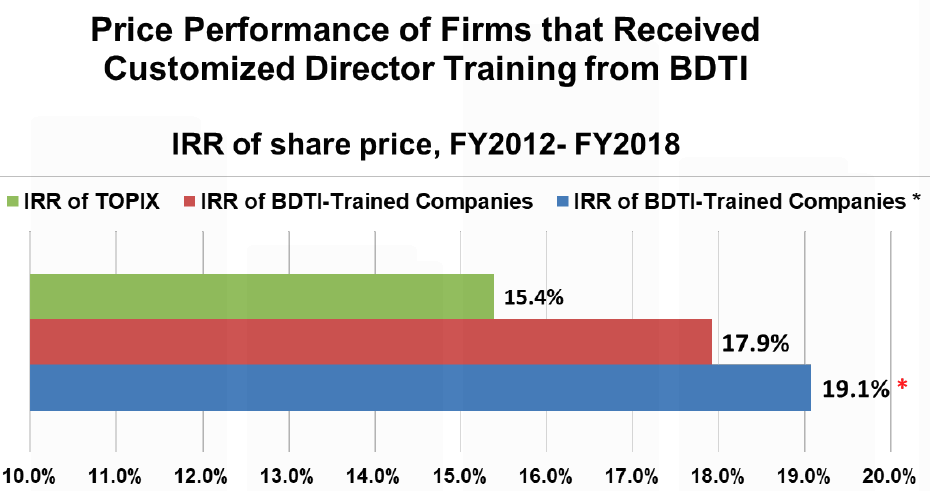BDTI and METRICAL collaborate on researching the linkage between CG practices sand value creation. We have recently released our updated analysis as of April 2018 for the roughly 1,800 publicly traded companies with market capitalization exceeding about JPY10 billion.
In this analysis, by examining board practices (CG guidelines, practices, and composition of the Board of Directors) and specific actions (real actions by a company) separately, we try to identify statistically significant correlations with financial performance measures (ROE, ROA, Tobin ‘s q) for each of these respectively – i.e, for, board practices and action respectively.
We have observed a certain degree of improvement in board practices since the introduction of the Corporate Governance Code. However, assuming that one of the key goals of the corporation is value creation, in order to improve the effectiveness of engagement and stewardship it is very important to regularly analyze the way in which such improvement (and specifically, which improvements) appears to lead to value creation.
We can summarize the results of our recent analysis as follows:
 Board portals have established themselves as a must-have in board communications. The current generation allows boards to go entirely paperless.
Board portals have established themselves as a must-have in board communications. The current generation allows boards to go entirely paperless.

